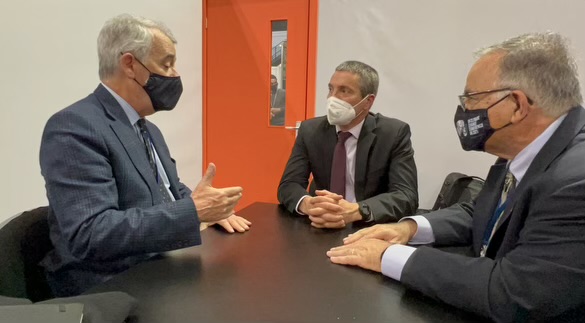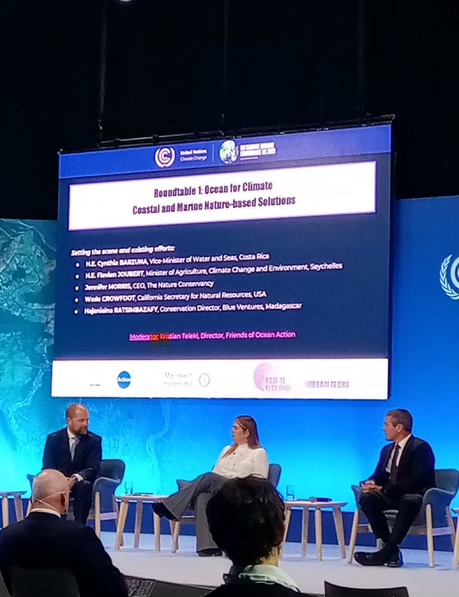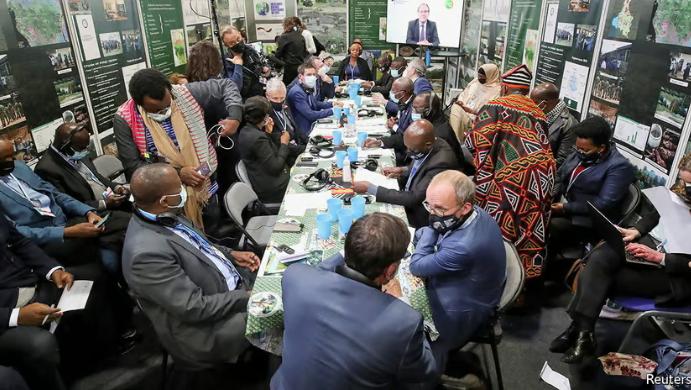Published Date:
COP28 brings together governments from across the globe in Dubai, United Arab Emirates to combat climate change. California leaders will be there in force to push for progress, including key legislators and our team from Governor Newsom’s administration.
So just what is this gathering, and more importantly, why does it matter?
Speaking the Language of International Climate Negotiations
First, let’s decode some important climate jargon:
- COP28 will be the 28th annual convening under official United Nations auspices to negotiate solutions to the climate crisis—hence the “28.”
- COP stands for “Conference of Parties” and includes those governments who are parties to the international treaty called the United Nations (UN) Framework Convention on Climate Change.
- This treaty is one of several UN efforts to address challenges that are global in nature. California is also an official observer to the UN Convention on Biological Diversity.
Only national governments can be party to this climate change treaty. States, provinces, and cities are “subnational” governments. Our subnational climate actions deliver on the global goals set in these negotiations. (Given how important states and cities are to solve the climate crisis, Washington Governor Jay Inslee and others call us supernational governments.)
Where Things Stand
In Paris in 2015, after years of frustration to find global alignment to combat climate change, COP 21 achieved a breakthrough. At those negotiations, national governments all agreed to pursue efforts to limit global temperature increase to 1.5° Celsius—a critical threshold to avoid horrible climate disruption—and establish national climate action plans called “Nationally Determined Contributions” to collectively achieve this goal. These action plans, known as NDCs for short, are updated every five years.
This year, the first global stocktake assessed progress to deliver on Paris Agreement goals. Spoiler alert: The initial draft assessment released earlier this year—to be discussed in Dubai—shows that countries are not moving fast enough to achieve their NDC commitments. In other words, we’re not doing enough to keep global temperature change at 1.5 Celsius.
The glass half full? All countries of the world are aligned on paper to stabilize global climate and achieve a net-zero carbon future. The glass half empty? We’re not moving nearly as fast as needed to avoid catastrophic climate disruption. So, Dubai is a critical inflection point: a moment of honest reflection that we need to accelerate climate action and work together more effectively to do this.
Where California Comes In
California is ready and continues to contribute to this conversation. Our state continues to show the world how a large economy (the world’s 5th largest) can move fast to achieve climate targets.
California’s pathway to carbon neutrality through our state’s Scoping Plan is global model, and policy innovations like our Cap & Trade program, energy efficiency standards, our transition to zero emission transportation are models being adopted by other countries. The world is watching California’s continued progress breaking new ground, like multiplying battery energy storage we’ve brought onto our grid over the last two years.
We’re also excited to share how were learning from indigenous knowledge and growing partnerships with California Native American tribes.
I’ll spend time in Dubai sharing more about how nature figures in to our climate action, both through our ambitious 30x30 conservation movement and through nature based solutions like reducing carbon emissions from our lands. Our California Natural Resources Agency is spearheading California’s efforts in this area.
My colleagues California Agriculture Secretary Karen Ross, Tribal Secretary Christina Snyder-Ashtari, CARB Chair Liane Randolph, and California Energy Commission Chair David Hochschild will also share California’s actions in each of their own areas.


States, Provinces and Cities Can Lead the Way
In Dubai, we’re also helping to lead a movement of subnational governments who are speaking with one voice to amplify the critical need for faster, more effective climate action. Simply put, we need to focus our international collaboration on implementation of our climate goals and commitments. We are working with other subnational governments in China, Australia, Mexico, Europe and beyond to help our countries delivery on Paris Agreement commitments.
States, provinces and cities are on the frontlines of implementation. In Dubai, our subnational alliance is driving toward more ambitious phase out of fossil fuels, subnational leadership to limit super pollutants like methane, and closer coordination to better protect our people against existing climate change impacts (note: we’ll be making an announcement in Dubai on this front).
We also believe it is important to formalize subnational contributions to global climate goals through the COP process. Basically, this means putting climate commitments of states like California into the official and visible UN registry of governments’ climate commitments. Why is this important? It creates a clear expectation that states, provinces and city governments will meet our climate commitments regardless of who’s leading our national governments (particularly important in our country) and helps to standardize subnational climate commitments to a high standard. We will be talking to other subnational leaders, Parties, and the UN about how best to do this.
Climate change is not only a global crisis, but a clear and present danger to our communities and in our lives. While we continue to charge down the field combatting this crisis in California, such intensity is needed across the globe.
We’ll bring this intensity and focus to Dubai. There’s no time to waste.




